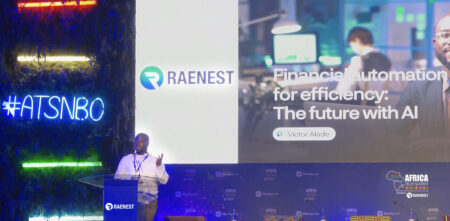Artificial intelligence (AI) technologies are forecast to add US$15 trillion to the global economy by 2030. A new report by Canadian International Development Research Center (IDRC) and Oxford Insights has noted that Africa ranks lowly on the global list countries that have adopted or are ready to adopt technologies related to Artificial Intelligence.
There are no African countries in the top 50 positions, and only 12 African countries in the top 100. The top five placed African governments – Kenya, Tunisia, Mauritius, South Africa, and Ghana – reflects the well-documented developments in the technology sectors of these countries.
Of the bottom ten countries, seven are classified as Least Developed Countries, the Government Artificial Intelligence Readiness Index 2019 reports.
One of the biggest challenges facing the characterization of AI activities and readiness in Africa is a lack of systematic study on the topic. As a result, there is a relative lack of data, and much of the information about AI in Africa is anecdotal.
Read also: Microsoft dives into Artificial Intelligence (AI) in Africa
There have been a number of developments over the past year that point to a growing AI scene across the region. Local AI labs and research centres are appearing throughout Africa, such as the announcement in June 2018 that Google are to open their first African AI research hub in Accra, Ghana.
Other examples include the University of Lagos, which launched Nigeria’s first AI hub in June 2018 to develop the country’s AI sector and skills.
The continued rapid proliferation of tech hubs in Africa is now a widely researched phenomenon, with a number of cities such as Cape Town, Addis Ababa, Kigali, and Nairobi all positioning themselves as regional centres for innovation.
Isaac Rutenberg is a Senior Lecturer and the Director of the Centre for Intellectual Property and Information Technology Law (CIPIT) at Strathmore Law School in Kenya says the potential for AI research and development which is contextually specific for Africa is vastly improved by this association with tech hubs.
“The Government AI Readiness Index presents a global look at AI that produces results consistent with other metrics for the state of technology in Africa. The outlook for AI in Africa is positive in that there is growing interest in the topic from formal research centres and informal developer communities,” he said.
Rutenberg added that considering the disparities highlighted in this report, policymakers should act to ensure that global inequalities are not further entrenched or exacerbated by AI.
“Emerging technologies offer a unique opportunity to improve the governments of the future, and citizens’ experience of government. As we enter the age of automation, governments must ensure that they are ready to capitalise on the potential power of AI.”











